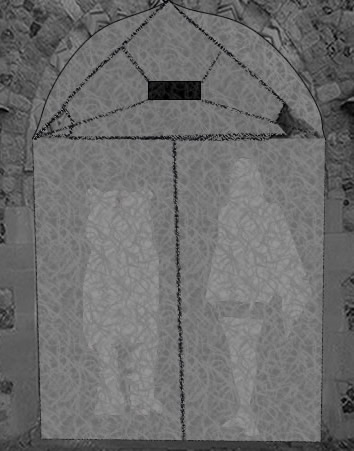Oh, those wild and patriotic people who are called Scots: Theirs is a history of inspiration and endurance. Fighting for individual freedom and for the freedom of their sons and daughters since the beginning, the Scots are a symbol of independence, stubbornness, and bravery; attributes that should be respected.
One of the most famous Scotsmen is Robert the Bruce (not to be confused with the equally celebrated William Wallace remembered in the Mel Gibson film Braveheart). While Wallace was a lesser lord, Robert the Bruce was the rightful king of Scotland. From the late 1200’s and into the early 1300’s, Wallace fought against Edward I until he was betrayed and executed. After the horrible event, Robert the Bruce (as legend has it) spurned his troops on to battle the English with a morale boosting speech. Years later, the story so affected a certain poet that he wrote what could verily well have been the lyrics of the marching tune. The poet? His first name was identical to that of Bruce, but his surname was Burns.
Born in 1759 to a farmer in Ayrshire, the southern area of Scotland, Robert Burns was encouraged by his father to attend school. However, Burns himself was responsible for nearly all of his education including literature, politics, philosophy, and theology (NAEL,165). Most famous for his poem “Auld Lang Syne”, Burns wrote extensively of love as well as patriotism for Scotland. This patriotism is most evident in the poem entitled “Scots Wha Hae” (Scots Who Have), or “Robert Bruce’s March to Bannockburn”.
Written by Robert Burns in 1793, the purpose of “Scots Wha Hae” was to look at the way Robert the Bruce, the rightful King of Scotland, encouraged and elevated the morale of the Scotsmen persisting in the resistance against Edward I of England. They had fought numerous battles, had witnessed the brutal death of their leader William Wallace, and were more than ever in danger of losing not only their lives but the hope that they and their children would be free. As a Scotsman, Burns felt this, and writing in the Scottish dialect, penned a passionate poem.
The poem begins by presenting that the Scots who fought with Wallace were later led by Bruce, and it summarizes the clear reasons why they were fighting: To escape “Chains and Slaverie” as well as “Oppressions, woes and pains”, and their goal, if necessary, was to “drain their dearest veins” so their children would be free from the stated oppression. (NAEL, 180). This hope was not for the said first generation, but the second and third as well. The highlanders were going to have their way; they were going to do or die.
The piece may surprise readers, as Burns wasted no time in exposing that this was definitely not the story of a little skirmish. The struggle spanned quite a lengthy period of years. However, the Scots who had with Wallace bled and afterwords by Bruce been led knew full well that a gory bed would most likely come before “victorie” (NAEL, 180). The first stanza is almost a wake-up call: As I read it for the first, second and third time, I could imagine the masses of men with hard set, emotionless faces worn with circumstances unavoidable. These were no ordinary men, and Burns saturated his poem with this fact. Determined to “lay the proud Usurpers low”, the Scotsmen were not fighting for naught, but for Liberty, which was in their every blow (NAEL, 181).
Aside from the words and rhyme schemes used in “Scots Wha Hae”, Burns employed his own technique: He used the old Scottish dialect to show another picture of the Scots, that is, by offering a taste of the culture in order to move the reader closer to the thought and message of the poem. Words such as wham for whom, or sae for so. In this way, Burns assists readers in personally discovering that though the Scots were a wild and frightening people with a strange way of speech, deep down they had the same feelings and inner yearnings for liberty as anyone else has or will ever have.
After reading the poem, a reader aught to honor the love, respect, faithfulness, and raw courage the Scotsmen had. They were defiant of death, a feeling one can sense instantly while reading over the poem. This attribute, which the Scots shared, was probably what irritated the Englishmen to such an extent. It is an important theme to Burns' poem, as each stanza rings with a obstreperous call of what they believed. They could not be swayed, because they were not fighting for power, but for individuality, freedom, and love.
“Scots Wha Hae” is so much more than simple lyrics of a battle hymn used to encourage Scotsmen. This poem is a display of the passion every single Scotsman possessed despite the fact that death was leering its ugly head in their faces at every turn. “Scots Wha Hae” can surprise a reader who simply expects the normal flowery pieces of the Romantic era, while the written dialect in context of the poem endears the fighters of freedom to other readers. However, in the end, Robert Burns' poem is a passionate declaration of what these brave men were fighting for, and respect should be given not only to the message of the poem, but the men as well. The highlanders were not wild compatriots fighting solely for their country or revolutionists who were greedy for power. No, theirs is a story of fighting for not only their own freedom, but that of their sons and daughters. The men endured because they were not fighting for their own means, but for Scotland, for respect, their fellow countrymen, and the love of their families, which is what truly matters in the end.


